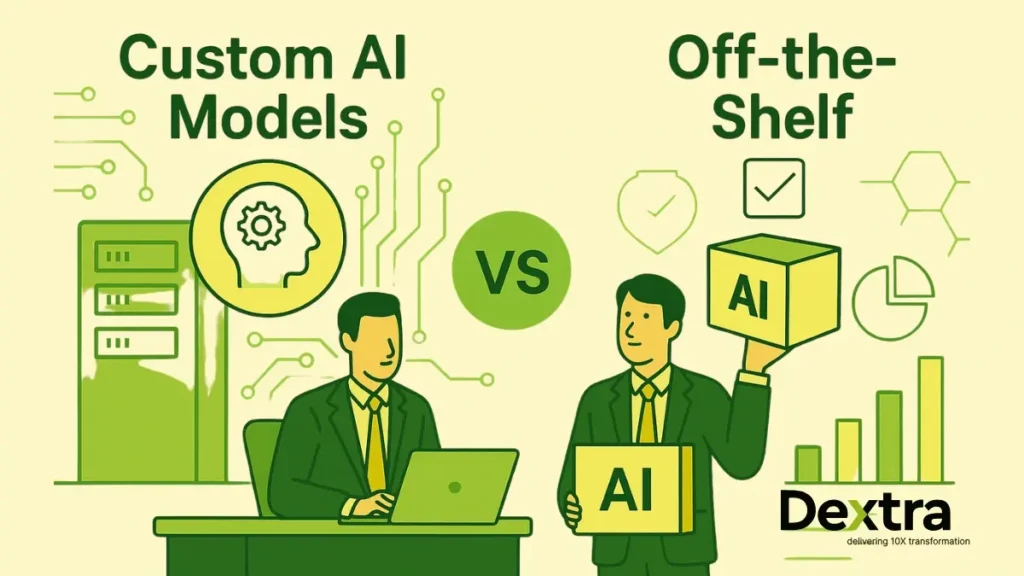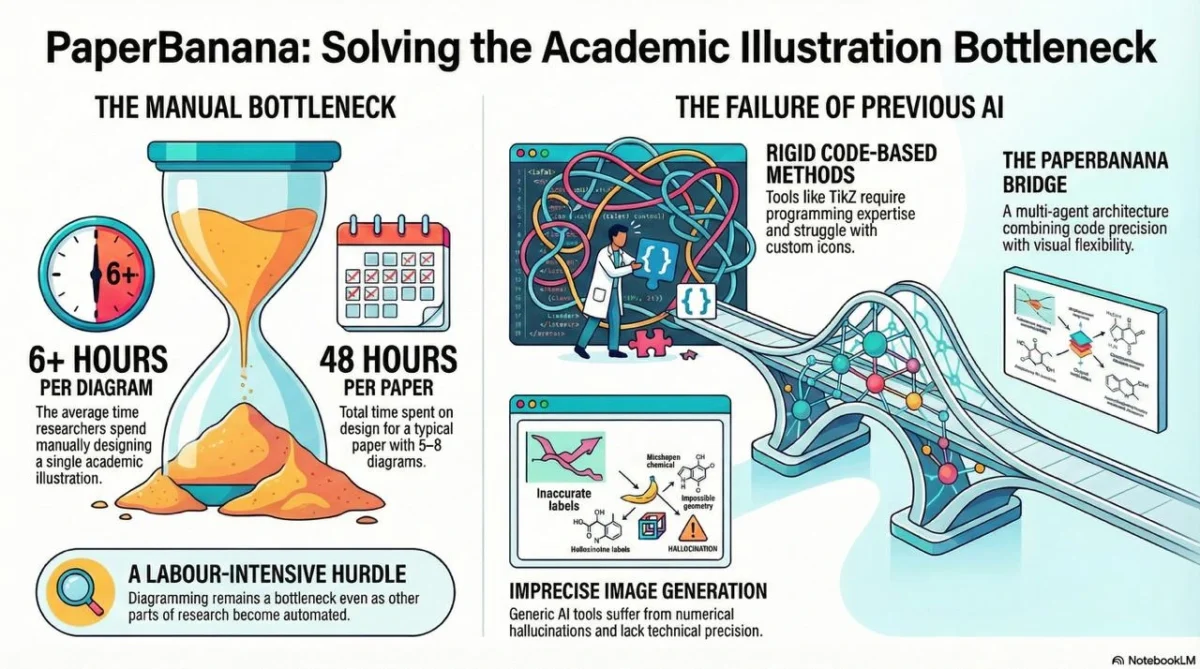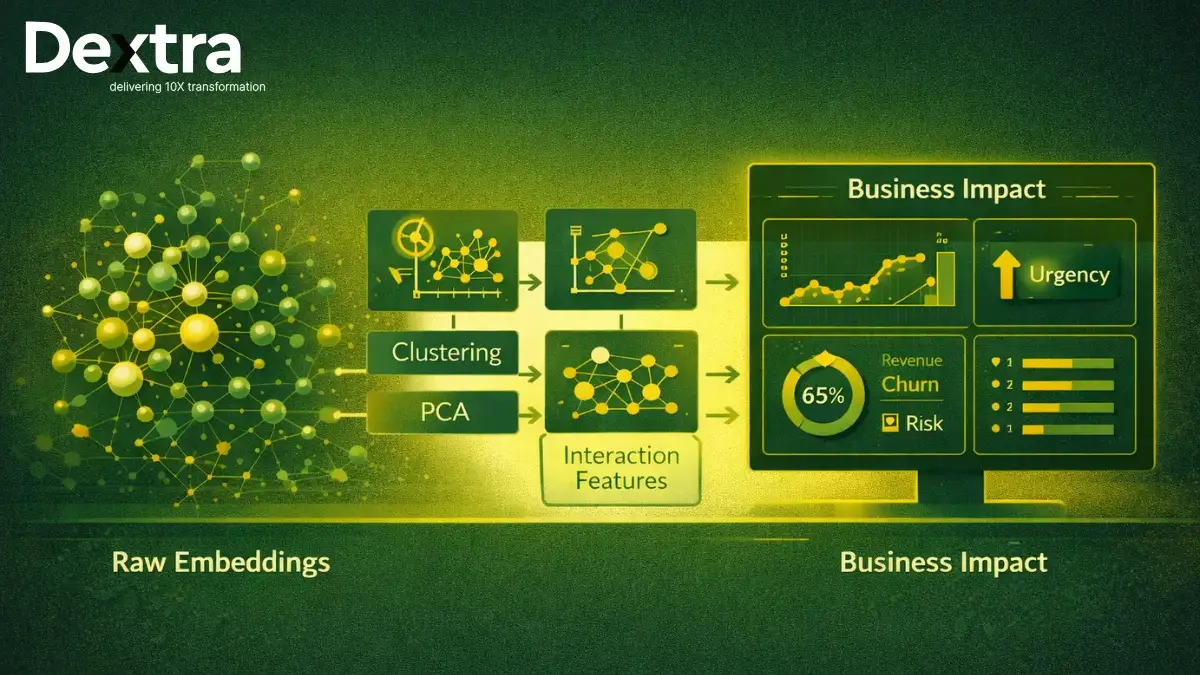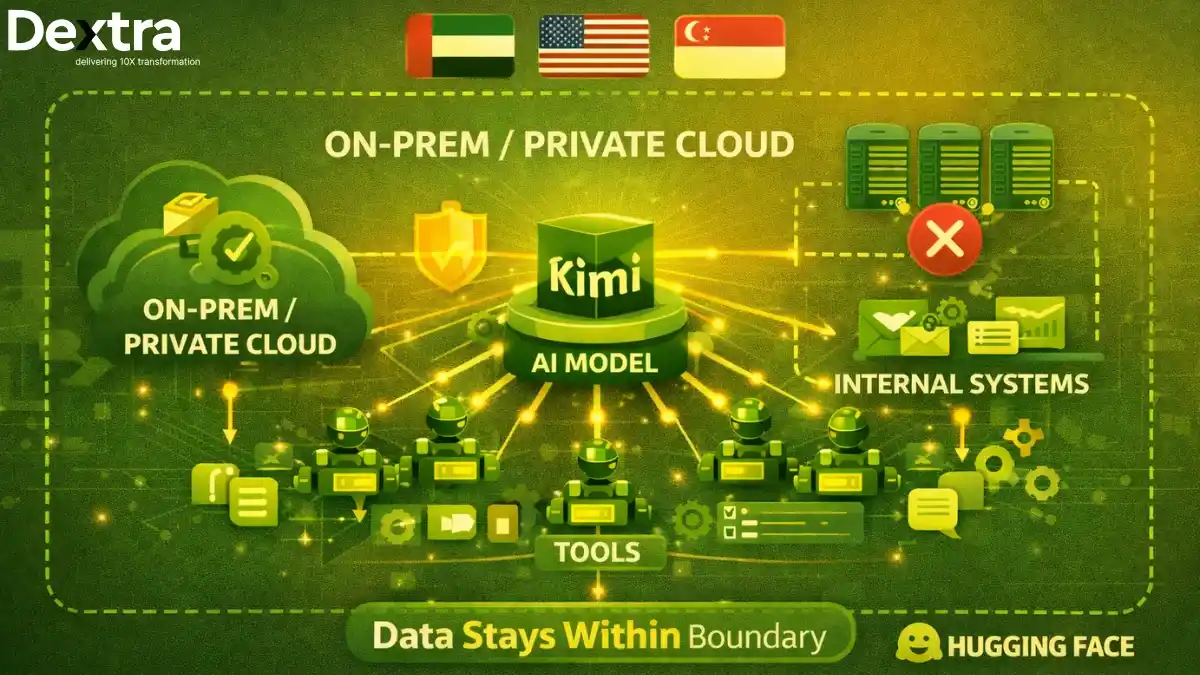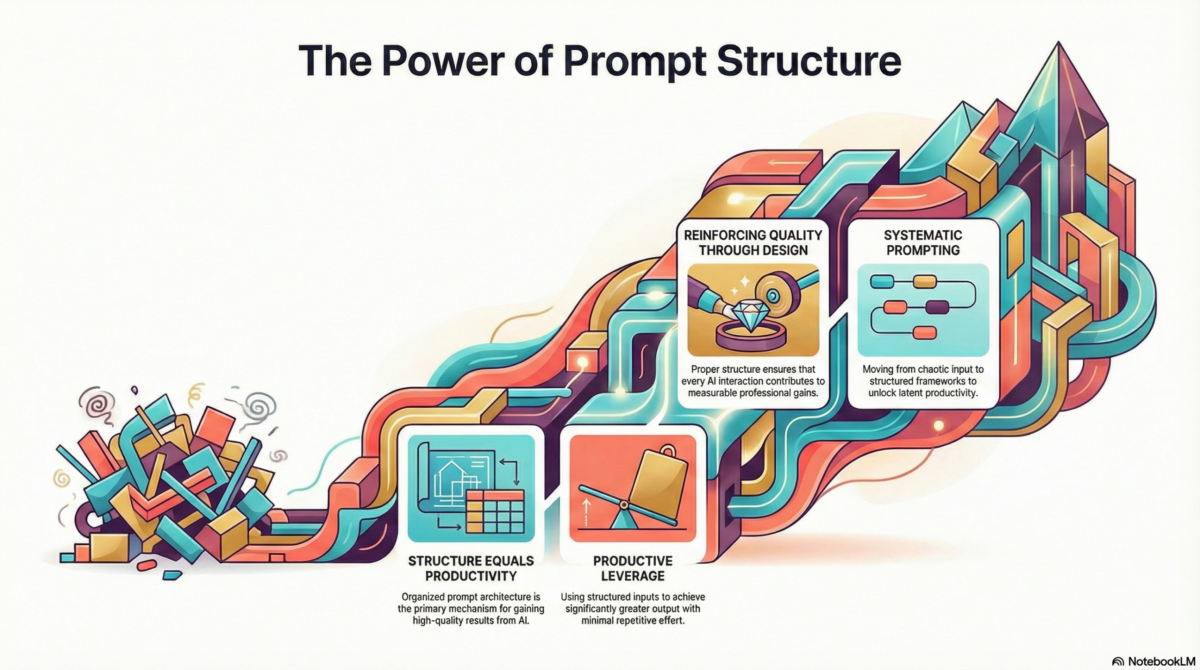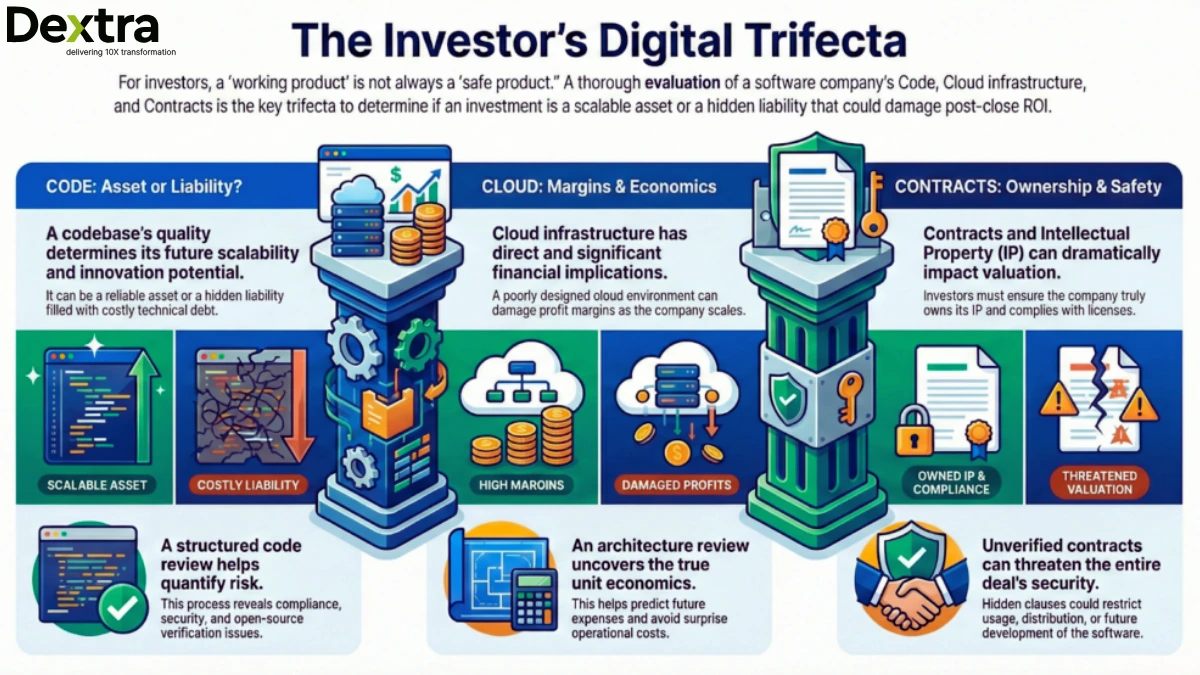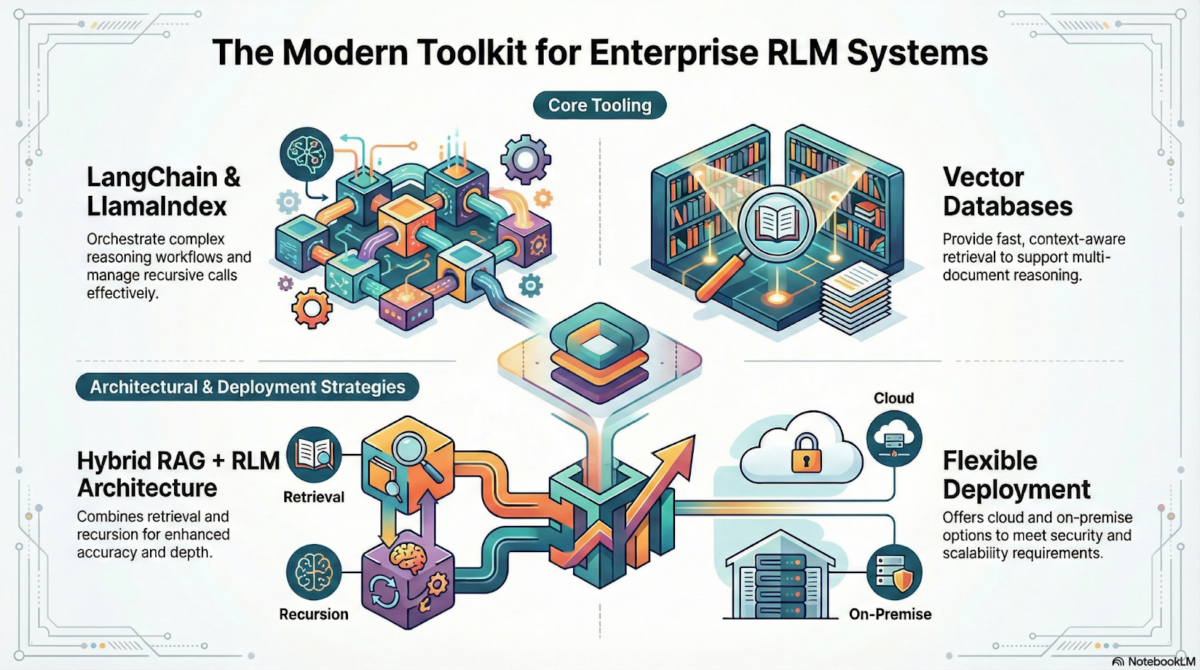Artificial intelligence is omnipresent now: powering new products, automating business processes, and improving customer experience. But if you’re the founder or CTO of a firm and want to add AI to your platform, you have to make a tough but important choice. Should you use ready-made AI because it’s easy, or should you make your own best AI model that is perfect for your business needs?
It’s not just about technology. Your choice will affect your speed, costs, product flexibility, and potentially your long-term competitive edge. This choice could impact the course of your startup. There isn’t one proper option; the best decision relies on a lot of things, such as the use case, the technical team, who owns the data, the rules, and even how much control you want over your model’s logic.
Today at Dextra Labs, this guide breaks down what each choice really means. We’ll look at ready-made models, custom AI development, and how companies’ demands change as they learn, grow, and get more business. You’ll explore real-life examples, industry standards, and helpful comparisons. It will help you make decisions and plan.
Custom or Off-the-Shelf? Let’s Build What’s Right for You
Dextralabs helps you choose and implement the AI model that best fits your business needs.
Explore Our Custom AI Implementation ServicesWhat Are Off-the-Shelf AI Models?
Off-the-shelf AI models are pre-built, production-ready systems. These AI Models are created and maintained by top tech companies or established providers. They’re trained on broad and massive datasets, then offered as APIs or cloud platforms. Classic examples of such Ai Models include OpenAI’s GPT models for text, Google Vertex AI for various ML tasks, Amazon SageMaker JumpStart, and IBM Watson for business automation.
These models are multipurpose and instantly deployable. You use their pre-trained intelligence through APIs or libraries—no need to manage the training, validation, or infrastructure from scratch.
Common use cases of Off-the-Shelf AI Models:
- Customer support chatbots that handle basic queries
- Sentiment analysis for understanding social media or review data
- Image classification in e-commerce, content moderation, or medical diagnosis
- AI-powered recommendation engines for personalized product or content suggestions
Best suited for:
- Young startups that need to deliver results quickly
- Teams with tight budgets or limited in-house AI expertise
- Businesses testing prototypes, MVPs, or new product concepts
What are the benefits of Off-the-Shelf AI Solutions?
Why do most startups choose off-the-shelf models first? For many, it comes down to three things: speed, simplicity, and lower upfront risk.
Fast Time to Market
You can go live in days or even hours. Connect the API, supply your data, and get predictions instantly. This agility is crucial when you’re racing to hit milestones or prove value to investors.
Lower Upfront Costs
There’s no large bill for hiring machine learning engineers. No need for GPU infrastructure or complex data pipelines. Billing is typically pay-as-you-go, so it’s easy to forecast and scale your spend as you grow.
No Deep Data Science Required
You use the model, but you don’t have to know the math behind it. This opens up AI experimentation to founders and teams without a heavy technical background.
Trained on Massive Datasets
Tech giants pour resources into training these models on billions of data points. As a result, general-purpose tasks—like language, vision, or prediction—start strong, with fewer errors out of the box.
Industry data supports this adoption. In 2024, 79% of businesses choosing AI will start with off-the-shelf models to minimize their time to market. (McKinsey).
Limitations of Off-the-Shelf AI:
Yet, “plug and play” doesn’t always get you to product-market fit, especially if your challenges or data are unique.
Limited Customization
Out-of-the-box models handle broad scenarios. But if you work in a niche vertical, off-the-shelf might miss context, ignore subtleties in your data, or fail to process specialized jargon or workflows.
Black-Box Nature
You rarely see how or why a prediction was made. The model’s logic is hidden, restricting debugging, improvement, or compliance—a big issue if you’re in finance, legal, or health.
Data Privacy and Security
Your data needs to leave your infrastructure or pass through third-party environments. If you’re handling PII, confidential business information, or regulated content, this is a real risk.
Integration and Workflow Gaps
Generic models may need more code to work with old software, databases, or business rules. This adds to technical debt and makes everyday tasks harder.
Remember that 56% of AI-led startups end up switching to custom AI after facing these problems (Gartner, 2024).
What Are Custom AI Models?
Custom AI models are unique to your business. You can either create them from scratch or use your proprietary data to improve open-source or foundation models. Development happens in your setting while adhering to your requirements, integration needs, and regulatory requirements.
Custom models do more than fit—they specialize. For example, a logistics platform might analyze years of shipment records, train a prediction model on their own ordering cycles, and out-perform generic competitors by reducing loss and anticipating demand.
Technical steps involved:
- Gathering and cleaning in-house data
- Defining model architecture or selecting base models for fine-tuning
- Training, cross-validating, and iterating with real business metrics
- Integrating directly with your systems and security stack
- Establishing feedback loops for ongoing learning and refinement
Benefits of Custom AI Models:
When your business hits limits with generic AI, custom AI models development opens new doors.
Specialized Solutions for Unique Problems
If your product lives or dies by edge cases, like rare diseases, compliance risks, specialist queries, or complex workflows, custom AI lives up to the challenge.
Full Control and Compliance
You own the model logic, training, and deployment. You can audit every step, tune hyperparameters, and address regulatory demands with confidence.
Domain-Level Accuracy
How to train an AI model? By training on your business’s historical data, a custom AI model can achieve up to 30% higher accuracy in domain-specific tasks (O’Reilly AI Adoption Report, 2024). This boost is often the deciding factor in competitive sectors.
Intellectual Property Ownership
You build proprietary value right into your tech stack. The code, architecture, and training pipelines can become significant assets for prospective investors or acquirers.
Challenges of Custom AI Models:
Moving to custom AI integration strategies is a big leap, it’s not all upside.
Higher Upfront and Ongoing Cost
Budget for experts in data engineering and AI, annotators, robust computing infrastructure, and continuous model retraining.
Longer Time to Value
It can take weeks or months to make a custom model, which includes testing, quality assurance, and deployment. On the other hand, it only takes hours to use an off-the-shelf model.
Need for Specialist Teams
To keep up the good work, you need employees who are experts in both your business and deep AI. This includes ML engineers, data scientists, and product leads.
Continuous Maintenance
Real-world data is never the same. You must periodically check on your model, retrain it, and occasionally make significant adjustments to prevent it from drifting.
Many startups don’t realize at first how quickly costs and team requirements can scale.
Key Factors to Decide: Custom AI Models vs Off-the-Shelf
You need a structured way to compare. Here’s a quick side-by-side comparison between custom AI models vs off-the-shelf:
| Factor | Custom AI Models | Off-the-Shelf AI Solutions |
| Initial Cost | High (talent, infra, data) | Low (pay-as-you-go per use) |
| Time to Deploy | Weeks to months | Hours to days |
| Accuracy/Fit | Highly domain-specific | Generic, lower in niche cases |
| In-house Control | Full (code, data, ops) | Limited (API-level access only) |
| Scalability Options | Tailored to business | Designed for mass adoption |
| Regulatory Flexibility | High | Low to None |
| Best For… | Core AI startup, vertical | MVPs, feature add-ons, validation |
Use Case Scenarios
Let’s look at how each approach fits distinct startup needs.
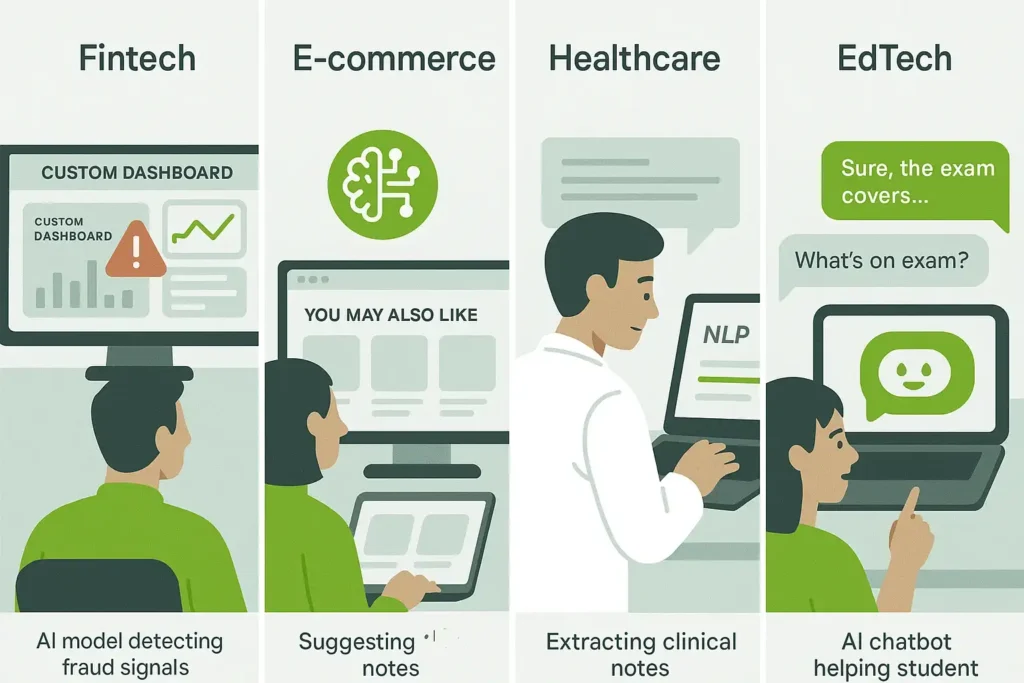
1. Fintech Startup:
Here, a scale-up creates a custom fraud detection model. This AI can spot suspicious patterns using both general payment data and the startup’s own transactional history, meeting strict compliance and boosting detection accuracy.
2. E-commerce Startup:
A young online store adopts an off-the-shelf recommendation engine. They implement it quickly, boosting sales and learning customer preferences without building a full data team.
3. Healthcare SaaS:
A SaaS provider refines an open NLP model using thousands of anonymized patient records. Their custom AI model parses clinical notes with high accuracy while keeping all PHI on secure local servers.
4. EdTech Platform:
Education teams use generic chatbot APIs to quickly scale support, providing after-hours help while keeping costs down.
When to Start with Off-the-Shelf AI?
Let’s explore at the signs when to start off-the-shelf AI:
- You’re in the earliest product stages and need fast iteration
- The team is limited in budget or AI resources
- You need to validate something for investors, not perfect the algorithm
- The AI feature isn’t your main product differentiator
When to Invest in Custom AI?
Have a look at when to invest in custom AI:
- Your startup’s entire edge or business model depends on the AI’s performance
- Generic models hit accuracy or compliance walls, or don’t speak your “language.”
- Your industry is tightly regulated—think medical apps, fintech, legal tech
- You own or can generate significant, unique data that competitors can’t access
Going custom is demanding, but it sets you apart. Many proven startups started generic, then switched to custom for scale and long-term defensibility.
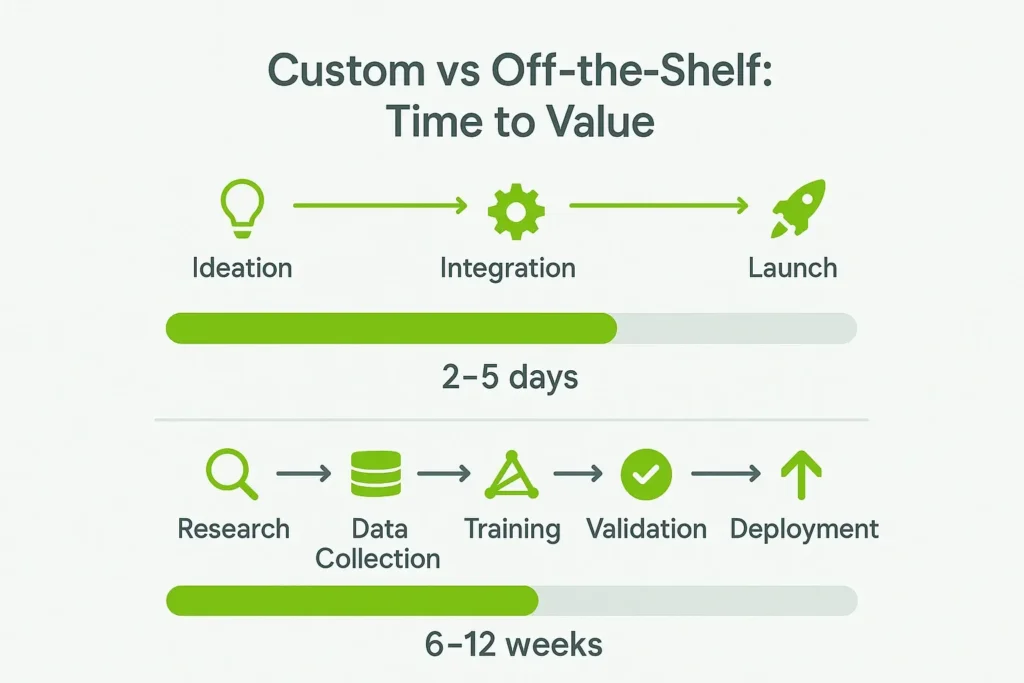
How Dextralabs Can Help?
Custom or off-the-shelf? You don’t have to decide alone. Dextralabs helps startups build the right AI stack at each growth stage.
Our Services:
- Custom AI model development for business tailored to your sector.
- Fine-tuning top pre-trained models on your exclusive data.
- Fast prototyping and MVP integrations
- AI strategy consultancy for hiring, scaling, and making plans for the future.
Case Study #1 (Healthcare SaaS):
We partnered with a healthcare SaaS team struggling with off-the-shelf NLP. With our solution, they achieved a 28% improvement in diagnosis accuracy and stayed fully HIPAA compliant.
Case Study #2 (Retail Tech):
An online retailer came to us after supply-chain losses rose. Our team built a custom demand-forecasting model, trained on several years of their sales and logistics data, reducing excess inventory costs by 35%.
Conclusion
Selecting custom AI models vs off-the-shelf is a continuous process. It’s a part of the ongoing learning curve for your startup. Early on, off-the-shelf AI can help you get your idea in front of real consumers and receive results quickly. As you become older, your data becomes more detailed and your needs become more particular. A unique model will help you stand out, obtain better results, and make a lasting difference.
If you don’t know where your team stands, get help. The appropriate help could save you a lot of time and money.
Need clarity? Schedule your free AI strategy call with Dextralabs. This is where you should start to make your startup smarter.

